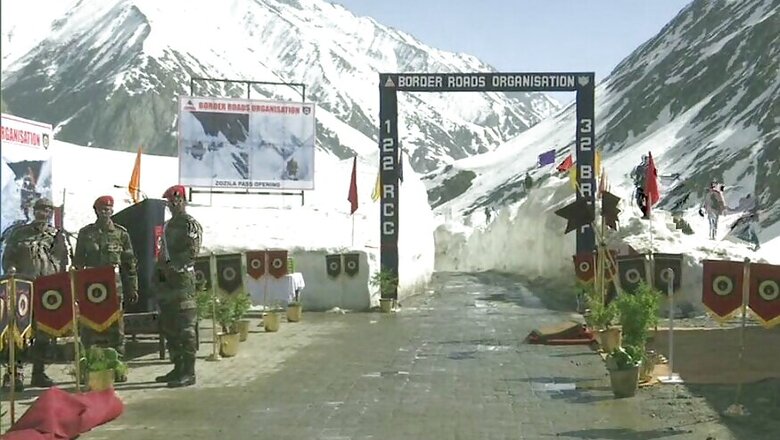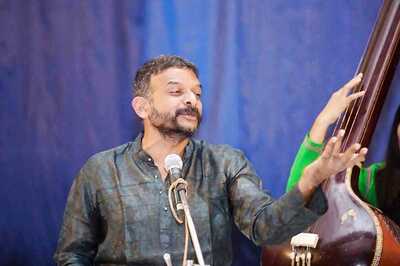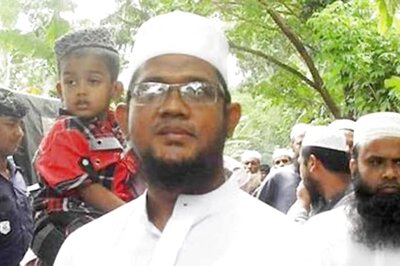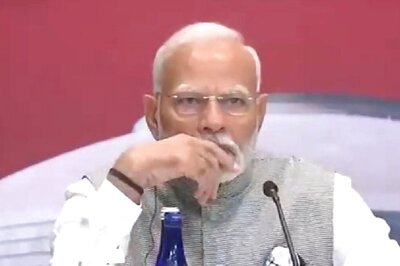
views
New Delhi: The decision to grant Ladakh the Union Territory status may have a come as a welcome move for a region that complained of political isolation, but it could also expose fault lines between the largely Buddhist Leh and the Muslim-dominated Kargil district.
On Monday, the Centre scrapped the special status for Jammu and Kashmir under Article 370 and proposed its bifurcation into two Union Territories Jammu and Kashmir and Ladakh.
Ladakh will be a UT without a legislature, unlike J&K which will have elected representatives.
Politicians from the sparsely populated region, which sprawls across 60,000 square kilometres and has a history and culture closely related to Tibet, have complained in the past that Ladakh had little say in the corridors of power.
But the decision to split Ladakh from Jammu and Kashmir triggered different responses in the region's two districts. There was jubilation in Leh but howls of protest in Kargil, reports said.
A Leh-based resident who did not want to be named said politicians in Kargil have called a two-day strike. They don't want Kargil district to be part of the new UT, saying it should be with J&K.
In February this year, the J&K administration created a separate division for Ladakh, which was part of the Kashmir division earlier.
Ladakh borders Tibet to the east, the Lahaul and Spiti regions to the south, the Kashmir valley, Jammu and Baltistan regions to the west, and the southwest corner of Xinjiang across the Karakoram Pass in the far north. It borders Aksai Chin, over which both India and China lay claim.
Ladakh was at the crossroads of important trade routes before the Chinese closed the borders with Tibet. Over the last few decades, the region has developed as a tourism hotspot, a favourite among foreign trekkers.
The largest town in Ladakh is Leh, followed by Kargil. In 2011 the region had a population of just 2.74 lakh, with a majority (1.41 lakh) in Kargil district.
Tibetan Buddhists form 39.7 per cent and Hindus, 12.1 per cent of the population. Overall, Muslims, most of them Shias, are the largest group with a population of 46.4 per cent.
Prominent politicians from both the BJP and Congress welcomed the UT announcement.
"Today is a historic day for the people of Ladakh which always faced discrimination and stepmotherly treatment from successive governments in the past in funding share and employment," said Jamyang Tsering Namgyal, the BJP Lok Sabha member from the constituency.
Ladakh Buddhist Association President P T Kunzang, former MP Thupstan Chhewang, Congress leader and former MLA Tsering Samphel, MLC Chering Dorjay, Congress district president Tsering Namgyal and local BJP president Dorjay Angchuk also hailed the decision, terming the move "historic".
However, in the neighbouring Kargil district, politicians expressed resentment.
"It is a black day not only for Jammu and Kashmir but for the whole country. We are against the division of Jammu and Kashmir on the basis of religion, language and region," said Congress rebel leader and former MLA Asgar Ali Karbalai.
Karbalai predicted there will be a massive agitation.
"The people of Kargil always voiced their opposition to the demand of UT status for Leh. The government's decision to create a separate UT for Ladakh without a legislature is unconstitutional," he said.
He said the Constitution of India and the Jammu and Kashmir constitution gave people a right to elect their representatives.
Sajjad Hussain, who fought the last Lok Sabha elections unsuccessfully with the joint support of the National Conference and the Peoples Democratic Party, said the people of Kargil want to be a part of Kashmir region.
"Leh was demanding that Ladakh be freed from the Kashmir region over a long time but we are against the revocation of Article 370, he said.
Kargil residents are safeguarding the borders of the country and the decision which was taken by the government is against our desire and aspirations," Hussain added.
He appealed to the government to rethink its decision as "we want to be part of Kashmir".


















Comments
0 comment